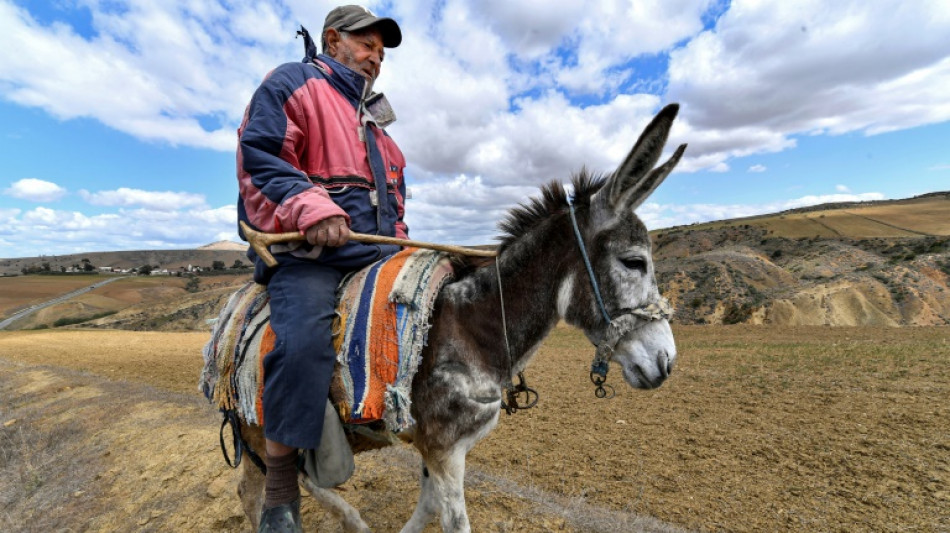
-
 UK counter terrorism police probe Irish rappers Kneecap
UK counter terrorism police probe Irish rappers Kneecap
-
S. Korea crisis deepens with election frontrunner retrial, resignations

-
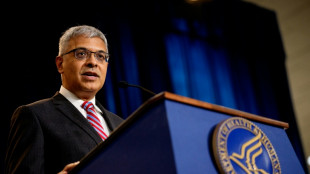 Trump administration releases report critical of youth gender care
Trump administration releases report critical of youth gender care
-
IKEA opens new London city centre store

-
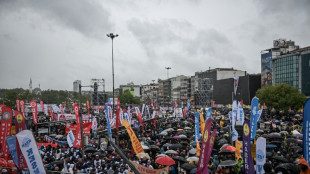 Police deploy in force for May Day in Istanbul, arrest hundreds
Police deploy in force for May Day in Istanbul, arrest hundreds
-
Syria Druze leader condemns 'genocidal campaign' against community
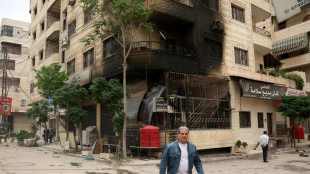
-
 Prince Harry to hear outcome of UK security appeal on Friday
Prince Harry to hear outcome of UK security appeal on Friday
-
Microsoft raises Xbox prices globally, following Sony

-
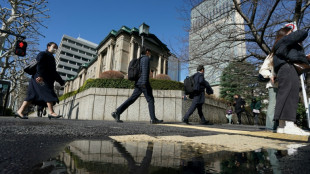 US stocks rise on Meta, Microsoft ahead of key labor data
US stocks rise on Meta, Microsoft ahead of key labor data
-
Toulouse injuries mount as Ramos doubtful for Champions Cup semi

-
 Guardiola glad of Rodri return but uncertain if he'll play in FA Cup final
Guardiola glad of Rodri return but uncertain if he'll play in FA Cup final
-
Ruud sails past Medvedev into Madrid Open semis

-
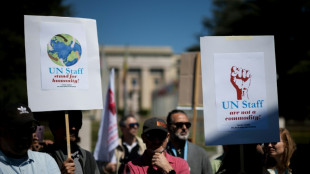 'Not a commodity': UN staff rally over deep cuts
'Not a commodity': UN staff rally over deep cuts
-
Flintoff proud as Afghan refugee protege plays for Lancashire second team

-
 Peruvian cardinal accused of abuse challenges late pope's sanction
Peruvian cardinal accused of abuse challenges late pope's sanction
-
Trans women barred from women's football by English, Scottish FAs
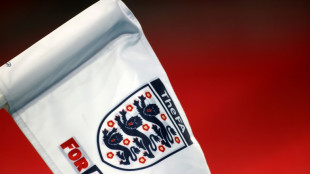
-
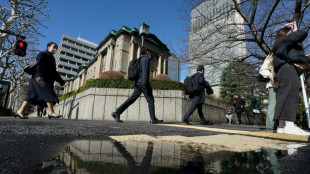 Oil prices drop, stocks diverge amid economic growth fears
Oil prices drop, stocks diverge amid economic growth fears
-
Israel brings fire near Jerusalem 'under control', reopens roads
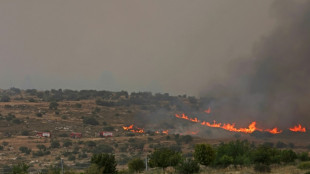
-
 Lopetegui appointed coach of Qatar
Lopetegui appointed coach of Qatar
-
UK counter-terrorism unit probes rappers Kneecap but music stars back band

-
 Yamal heroics preserve Barca Champions League final dream
Yamal heroics preserve Barca Champions League final dream
-
2026 T20 World Cup 'biggest women's cricket event in England' - ECB

-
 Bangladesh begins three days of mass political rallies
Bangladesh begins three days of mass political rallies
-
Children learn emergency drills as Kashmir tensions rise
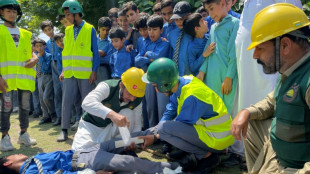
-
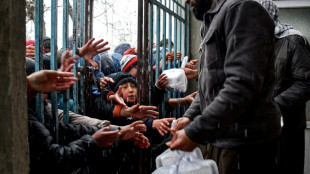 Millions of children to suffer from Trump aid cuts
Millions of children to suffer from Trump aid cuts
-
Veteran Wallaby Beale set for long-awaited injury return
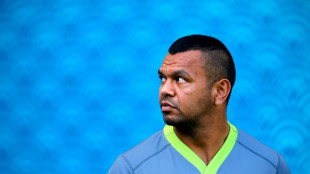
-
 Syria's Druze take up arms to defend their town against Islamists
Syria's Druze take up arms to defend their town against Islamists
-
Tesla sales plunge further in France, down 59% in April

-
 US calls on India and Pakistan to 'de-escalate'
US calls on India and Pakistan to 'de-escalate'
-
Israel reopens key roads as firefighters battle blaze

-
 Europe far-right surge masks divisions
Europe far-right surge masks divisions
-
James will mull NBA future after Lakers playoff exit

-
 Ukraine's chief rabbi sings plea to Trump to side with Kyiv
Ukraine's chief rabbi sings plea to Trump to side with Kyiv
-
Australian mushroom meal victim 'hunched' in pain, court hears

-
 Lakers dumped out of playoffs by Wolves, Rockets rout Warriors
Lakers dumped out of playoffs by Wolves, Rockets rout Warriors
-
Booming tourism and climate change threaten Albania's coast

-
 US reaching out to China for tariff talks: Beijing state media
US reaching out to China for tariff talks: Beijing state media
-
Tariffs prompt Bank of Japan to lower growth forecasts

-
 Kiss faces little time to set Wallabies on path to home World Cup glory
Kiss faces little time to set Wallabies on path to home World Cup glory
-
Serbian students, unions join forces for anti-corruption protest

-
 Slow and easily beaten -- Messi's Miami project risks global embarrassment
Slow and easily beaten -- Messi's Miami project risks global embarrassment
-
Fan in hospital after falling to field at Pirates game

-
 Nuclear power sparks Australian election battle
Nuclear power sparks Australian election battle
-
Tokyo stocks rise as BoJ holds rates steady

-
 Bank of Japan holds rates, lowers growth forecasts
Bank of Japan holds rates, lowers growth forecasts
-
'Sleeping giants' Bordeaux-Begles awaken before Champions Cup semis

-
 Napoli eye Scudetto as Inter hope for post-Barca bounce-back
Napoli eye Scudetto as Inter hope for post-Barca bounce-back
-
Germany's 'absolutely insane' second tier rivalling Europe's best

-
 PSG minds on Arsenal return as French clubs scrap for Champions League places
PSG minds on Arsenal return as French clubs scrap for Champions League places
-
UK WWII veteran remembers joy of war's end, 80 years on


Tunisia drought threatens 'catastrophic' grain harvest
A severe drought in North Africa has left Tunisian farmers bracing for a catastrophically poor harvest, imperilling food security in the cash-strapped country.
At a time when the global cereals market has been disrupted by the Ukraine war, Tunisia's domestic grain production has also withered under a lack of rainfall that has killed off crops.
Even before the roasting summer months, the soil is dry and dusty in the small Mediterranean country, whose water resources are steadily depleting as climate change intensifies.
"We've never seen a drought this bad," said wheat farmer Tahar Chaouachi, walking despondently through his field, 55 kilometres (35 miles) inland from the capital Tunis.
"It's been dry for the last four years but we expected some rain this season. Instead, it's become worse."
With some Tunisian water reservoirs almost completely dry, authorities imposed emergency measures last month, rationing household supplies and banning water use for washing cars -- as well as for irrigating fields.
"Production is at zero," said Chaouachi, whose farmland lies in Beja province, a key grain production area since the days of the Roman Empire.
"The situation is unsustainable. We're losing everything we spend on seeds, fertiliser, pesticides and wages," he said. "There's no telling where things are heading."
The shortages come at a critical time for Tunisia, a net importer of wheat that has been hit hard by price hikes since Russia's invasion of Ukraine, both huge cereals exporters.
A painful cost-of-living crisis is compounding woes as the government is in negotiations with the International Monetary Fund for a bailout package.
- 'Seeds just died' -
Tunisia -- a country of 12 million where almost every meal involves bread, couscous or other cereals-based food -- needs three million tonnes of wheat and barley a year.
Normally around two-thirds of this comes from overseas, but with the Ukraine war showing no signs of abating, that option looks expensive or even impossible.
The lack of rain has left reservoirs at historic lows of less than a third of capacity nationwide.
The biggest, located at Sidi Salem, a short drive from Chaouachi's farm, is filled to just 16 percent of capacity.
The area has seen less than 10 centimetres (four inches) of rain since the autumn, pushing farmers either to plough withered crops back into the soil or harvest the stalks for animal feed.
Chaouachi said that in December, "we sowed wheat here, but the seeds have just died because it's too dry".
Of the 600 hectares (1,482 acres) he planted, he was able to harvest from just 70.
Last year Chaouachi managed to grow 1,000 tonnes of cereals, but this year he believes he won't break even, having spent 600,000 dinars ($198,000) on the season's cereal crop.
"This year's harvest will be catastrophic," warned Anis Kharbeche, spokesman for the farming and fishing union UTAP, predicting a fall in output of two-thirds from last year.
"We'll only be able to harvest seeds for the next season, and the country will have to import all of its needs for domestic consumption" of two types of wheat and barley, Kharbeche said.
- 'Rethink farming' -
UTAP has called on the government to urgently announce a drought and state of water "emergency".
It is also demanding a "clear strategy" to boost Tunisia's water reserves, calling for new desalination plants and quotas for at least some farm irrigation.
Kharbeche pointed out that farming makes up 12 percent of the economy, but "two or three percent of farmers are leaving the sector every year".
Tunisia's water woes are reflected across the Maghreb, already one of the world's most vulnerable regions to drought.
Only two of the past 10 years have seen what experts consider to be enough rainfall.
In December, when farmers were sowing their spring cereal crops, temperatures were 3 degrees Celsius above the seasonal average.
Water and climate expert Raoudha Gafrej told AFP that climate change meant "it's absolutely vital that we rethink how farming works".
For example, she said, the country should stop using valuable water reserves to grow dates for export.
Tunisia devotes 80 percent of its water supply to irrigating just eight percent of its farmland, leaving the remainder to rely on increasingly scarce rainfall.
"It doesn't make sense anymore," Gafrej said. "Drought means there will be no more water for rain-fed agriculture."
G.Stevens--AMWN